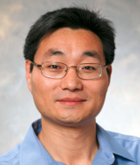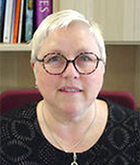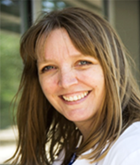2025 Lectures |
|
|
DEC
2
Lunch: 11:30 am
Lecture: 11:45 am ‒ 12:45 pm In-person seminar: Scott Hall 2268, 540 E Canfield, Detroit, MI 48201 UBX Proteins – X Factors in Immunity
Host: Kang Chen, PhD, Wayne State University
|

|
|
NOV
4
Lunch: 11:30 am
Lecture: 11:45 am ‒ 12:45 pm In-person seminar: Scott Hall 2268, 540 E Canfield, Detroit, MI 48201 Long-Term and Sex-Dimorphic Impact
of Maternal Environmental Exposures in Offspring Candy Jiahui Ding, M.D., Ph.D.
Assistant Professor C. S. Mott Center for Human Growth and Development Department of Obstetrics and Gynecology Wayne State University Host: Kang Chen, PhD, Wayne State University
|

|
|
JUL
29
Summer Mini-symposium
Wertz Auditorium, Hudson Weber Building, 4100 John R., Detroit, MI 48201 From Class to World-Class
Discussion with Trainees: 11:00 amA 30-Year Retrospective of Three WSU-KCI Alumni Lunch: 11:45 am Introduction: 12:00 pm Lectures: 12:00 ‒ 2:30 pm Novel Approaches in Cell and Gene Therapy Targeting the Immune System
Anne Galy, Pharm.D., Ph.D.
Director Accelerator of Technological Research in Gene Therapy INSERM, France Assist. and Assoc. Professor, ’95 – ‘01 Biomarkers in Clinical Development of Immunomodulatory Cancer Therapeutics
Amy Wesa, Ph.D.Vice President Precision Medicine and Biomarkers IO Biotech Graduate Program of Cancer Biology, Ph.D. '02 Adoptive Cell Therapy with Tumor Infiltrating Lymphocytes
Shari Pilon-Thomas, Ph.D.Co-Director Center for Immunization & Infection Research in Cancer Member Moffitt Cancer Center Graduate Program of Immunology and Microbiology, Ph.D. '02
|



|
|
JUN
3
Lunch: 11:45 am
Lecture: 12:00 ‒ 1:00 pm In-person seminar: Wertz Auditorium, Hudson Weber Building, 4100 John R., Detroit, MI 48201 Webinar: webex meeting: 2423 422 2983 Password: qFvdPy2cT36 Epigenetic Reprogramming of the Immune Microenvironment
in Gliomas: Impact on Immunotherapies Maria G. Castro, Ph.D.
R. C. Schneider Collegiate Professor of Neurosurgery Professor, Department of Cell & Developmental Biology Rogel Comprehensive Cancer Center University of Michigan Medical School Host: Qing-Sheng Mi, MD, PhD, Henry Ford Health
|

|
|
APR
1
Lunch: 11:45 am
Lecture: 12:00 ‒ 1:00 pm Wertz Auditorium, Hudson Weber Building, 4100 John R., Detroit, MI 48201 Uncovering Molecular Targets to Overcome
Therapy Resistance in Metastatic Melanoma Alan J Tackett, Ph.D.
Distinguished Professor of Biochemistry & Molecular Biology Deputy Director, Winthrop P. Rockefeller Cancer Institute Executive Associate Dean for Basic Research, College of Medicine Scharlau Family Endowed Chair in Cancer Research Director, NIH-IDeA National Resource for Quantitative Proteomics Director, NIH Center of Biomedical Research Excellence University of Arkansas for Medical Sciences Host: Wei-Zen Wei, PhD, Wayne State University
|

|
|
MAR
4
Lecture: 11:30 am ‒ 12:25 pm
Scott Hall 2268, 540 E Canfield, Detroit, MI 48201 Lunch with students: 12:30 ‒ 1:15 pm Non-invasive Histotripsy Cancer Treatment:
The Road from Bench to Bedside Zhen Xu, Ph.D.
Li Ka Shing Endowed Professor of Biomedical Engineering Professor of Radiology and Neurosurgery University of Michigan Co-Inventor of Histotripsy Co-Founder, HistoSonics Fellow of NAI, AIMBE, and IEEE Host: Kang Chen, PhD,
Wayne State University
|

|

|
 Profile
Profile